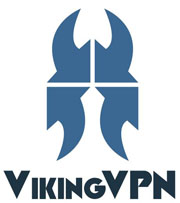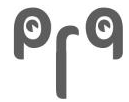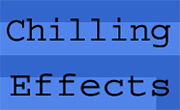 By now most Internet users are well aware of the fact that pretty much every step they take on the Internet is logged or monitored.
By now most Internet users are well aware of the fact that pretty much every step they take on the Internet is logged or monitored.
To prevent their IP-addresses from being visible to the rest of the Internet, millions of people have signed up to a VPN service. Using a VPN allows users to use the Internet anonymously and prevent snooping.
Unfortunately, not all VPN services are as anonymous as they claim.
Following a high-profile case of an individual using an ‘anonymous’ VPN service that turned out to be not so private, TorrentFreak decided to ask a selection of VPN services some tough questions.
By popular demand we now present the third iteration of our VPN services “logging” review. In addition to questions about logging policies we also asked VPN providers about their stance towards file-sharing traffic, and what they believe the most secure VPN is.
—
1. Do you keep ANY logs which would allow you to match an IP-address and a time stamp to a user of your service? If so, exactly what information do you hold and for how long?
2. Under what jurisdictions does your company operate and under what exact circumstances will you share the information you hold with a 3rd party?
3. What tools are used to monitor and mitigate abuse of your service?
4. In the event you receive a DMCA takedown notice or European equivalent, how are these handled?
5. What steps are taken when a valid court order requires your company to identify an active user of your service?
6. Is BitTorrent and other file-sharing traffic allowed on all servers? If not, why?
7. Which payment systems do you use and how are these linked to individual user accounts?
8. What is the most secure VPN connection and encryption algorithm you would recommend to your users?
—
What follows is the list of responses from the VPN services, in their own words. Providers who didn’t answer our questions directly or failed by logging everything were excluded. Please note, however, that several VPN companies listed here do log to some extent. The order of the lists holds no value.
 1. We absolutely do not log any traffic nor session data of any kind, period. We have worked hard to meticulously fork all daemons that we utilize in order to achieve this functionality. It is definitely not an easy task, and we are very proud of our development team for helping Private Internet Access to achieve this unique ability.
1. We absolutely do not log any traffic nor session data of any kind, period. We have worked hard to meticulously fork all daemons that we utilize in order to achieve this functionality. It is definitely not an easy task, and we are very proud of our development team for helping Private Internet Access to achieve this unique ability.
2. We operate out of the US which is one of the few, if only, countries without a mandatory data retention law. We explored several other jurisdictions with the help of our professional legal team, and the US is still ideal for privacy-based VPN services.
We severely scrutinize the validity of any and all legal information requests. That being said, since we do not hold any traffic nor session data, we are unable to provide any information to any third-party. Our commitment and mission to preserve privacy is second to none.
3. We do not monitor any traffic, period. We block IPs/ports as needed to mitigate abuse when we receive a valid abuse notification.
4. We do not host any content and are therefore unable to remove any of said content. Additionally, our mission is to preserve and restore privacy on the Internet and society. As such, since we do not log or monitor anything, we’re unable to identify any users of our service.
5. Once again, we do not log any traffic or session data. Additionally, unlike the EU and many other countries, our users are protected by legal definition. For this reason, we’re unable to identify any user of our service. Lastly, consumer protection laws exist in the US, unlike many other countries. We must abide by our advertised privacy policy.
6. We do not discriminate against any kind of traffic/protocol on any of our servers, period. We believe in a free, open, and uncensored internet.
7. Bitcoin, Ripple, PayPal, Google Play (Mobile), OKPay, CashU, Amazon and any major Gift Card. We support plenty of anonymous payment methods. For this reason, the highest risk users should definitely use Bitcoin, Ripple or a major gift card with an anonymous e-mail account when subscribing to our privacy service.
8. We’re the only provider to date that provides a plethora of encryption cipher options. We recommend, mostly, using AES-128, SHA1 and RSA2048.
Private Internet Access website
 1. We do not keep any logs whatsoever.
1. We do not keep any logs whatsoever.
2. The jurisdiction is Canada. Since we do not have log files, we have no information to share. We do not communicate with any third parties. The only event in which we would even communicate with a third-party is if we received a court order. We would then be forced to notify them we have no information. This has not happened yet.
3. If serious abuse is reported we enable tcpdump to confirm the abuse and locate the user. These dumps are immediately removed. If the user is abusing our service they will be terminated permanently but we have never shared user information with a 3rd party.
4. We do not have any open incoming ports, so it’s not possible for us to “takedown” any broadcasting content.
5. We take every step within the law to fight such an order.
6. Yes, all types of traffic our allowed with our services.
7. We accept PayPal and Bitcoin. All payments are linked to users accounts because they have to be for disputes and refunds.
8. 256-bit AES is the most secure. However 128-bit blowfish is plenty good. If you’re concerned about surveillance agencies such as the NSA, their capabilities are shrouded in secrecy and claiming to be able to protect you is offering you nothing but speculation. As far as what’s publicly available for deciphering encryption, both of the encryptions I mentioned are more than sufficient.
BTGuard website
 1. TorGuard does not store any IP address or time stamps on any VPN and proxy servers, not even for a second. Further, we do not store any logs or time stamps on user authentication servers connected to the VPN. In this way it is not even possible to match an external time stamp to a user that was simultaneously logged in. Because the VPN servers utilize a shared IP configuration, there can be hundreds of users sharing the same IP at any given moment further obfuscating the ability to single out any specific user on the network.
1. TorGuard does not store any IP address or time stamps on any VPN and proxy servers, not even for a second. Further, we do not store any logs or time stamps on user authentication servers connected to the VPN. In this way it is not even possible to match an external time stamp to a user that was simultaneously logged in. Because the VPN servers utilize a shared IP configuration, there can be hundreds of users sharing the same IP at any given moment further obfuscating the ability to single out any specific user on the network.
2. TorGuard is a privately owned company with parent ownership based in Nevis and our headquarters currently located in the US. Our legal representation at the moment is comfortable with the current corporate structuring however we wouldn’t hesitate to move all operations internationally should the ground shift beneath our feet. We now offer VPN access in 23+ countries worldwide and maintain all customer billing servers well outside US borders.
We would only be forced to communicate with a third-party in the event that our legal team received a court ordered subpoena to do so. This has yet to happen, however if it did we would proceed with complete transparency and further explain the nature of TorGuard’s shared VPN configuration. We have no logs to investigate, and thus no information to share.
3. Our network team uses commercial monitoring software with custom scripts to keep an eye on individual server load and service status/uptime so we can identify problems as fast as possible. If abuse reports are received from an upstream provider, we block it by employing various levels of filtering and global firewall rules to large clusters of servers. Instead of back tracing abuse by logging, our team mitigates things in real-time. We have a responsibility to provide fast, abuse-free VPN services for our clients and have perfected these methods over time.
4. In the event of receiving a DMCA notice, the request is immediately processed by our abuse team. Because it is impossible for us to locate which user on the server is actually responsible for the violation, we temporarily block the infringing server and apply global rules depending on the nature of the content and the server responsible. The system we use for filtering certain content is similar to keyword blocking but with much more accuracy. This ensures the content in question to no longer pass through the server and satisfies requirements from our bandwidth providers.
5. Due to the nature of shared VPN services and how our network is configured, it is not technically possible to effectively identity or single out one active user from a single IP address. If our legal department received a valid subpoena, we would proceed with complete transparency from day one. Our team is prepared to defend our client’s right to privacy to the fullest extent of the law.
6. BitTorrent is only allowed on select server locations. TorGuard now offers a variety of protocols like http/socks proxies, OpenVPN, SSH Tunnels, SSTP VPN and Stealth VPN (DPI Bypass), with each connection method serving a very specific purpose for usage. Since BitTorrent is largely bandwidth intensive, we do not encourage torrent usage on all servers. Locations that are optimized for torrent traffic include endpoints in: Canada, Netherlands, Iceland, Sweden, Romania, Russia and select servers in Hong Kong. This is a wide range of locations that works efficiently regardless of the continent you are trying to torrent from.
7. We currently accept payments through all forms of credit or debit card, PayPal, OKPAY, and Bitcoin. During checkout we may ask the user to verify a billing phone and address but this is simply to prevent credit card fraud, spammers, and keep the network running fast and clean. After payment it is possible to change this to something generic that offers more privacy. No VPN or Proxy usage can be linked back to a billing account due to the fact we hold absolutely no levels of logging on any one of our servers, not even timestamps!
8. For best security we advise clients to choose OpenVPN connections only, and if higher encryption is called for use AES256 bit. This option is available on many locations and offers excellent security without degrading performance. For those that are looking to defeat Deep Packet Inspection firewalls (DPI) like what is encountered in countries such as China or Iran, TorGuard offers “Stealth” VPN connections in the Netherlands, UK and Canada. Stealth connections feature OpenVPN obfuscation technology that causes VPN traffic to appear as regular connections, allowing VPN access even behind the most strict corporate wifi networks or government regulated ISPs.
TorGuard website
 1. We do not log any information on our VPN servers. The only scenario is if a technical issue arises, but we request permission from the user first, and we only do it for the duration of the job, and then it is removed.
1. We do not log any information on our VPN servers. The only scenario is if a technical issue arises, but we request permission from the user first, and we only do it for the duration of the job, and then it is removed.
2. We are in the process of moving jurisdictions away from Australia at present as we are unsure what our current government plans to do in regards to our privacy. We have not decided where yet.
3. Only SMTP port 25 is filtered to mitigate spam, but we are working on some tools to make it easier for users to send mail.
4. Any DMCA request is ignored, as we have no logs to do anything about them.
5. Same as above, as we do not log, so we are unable to provide any information. If the law attempts to make us do such things, we will move our business to a location where that cannot occur, and if that fails we will close up shop before we provide any information.
6. All protocols are allowed with our service, with the only exception of SMTP port 25 currently being filtered.
7. At present we only accept PayPal and CC (processed by PayPal), but we are looking into alternative types of payments. We go out of our way to make sure that PayPal transactions are not linked to the users, we generate a unique key per transaction to verify payment for the account is made, and then nuke that unique key. Bitcoin and Litecoin are also on the agenda.
8. At present we offer 128 bit for PPTP and 256 bit for OpenVPN, We plan to offer stronger encryption for the security conscious.
Privacy.io website
 1. No. We run a zero knowledge network and are unable to tie a user to an IP address.
1. No. We run a zero knowledge network and are unable to tie a user to an IP address.
2. United States, they don’t have data retention laws, despite their draconian surveillance programs. The only information we share with anyone is billing information to our payment gateway. This can be anonymized by using a pre-paid anonymous card. If asked to share specific data about our users and their habits, we would be unable to do so, because we don’t have any logs of that data.
3. That is mostly confidential information. However, we can assure our users that we do not use logging to achieve this goal.
4. In the event of a DMCA notice, we send out the DMCA policy published on our website. We haven’t yet received a VALID DMCA notice.
5. We exhaust all legal options to protect our users. Failing that, we would provide all of our logs, which do not actually exist. If required to wiretap a user under a National Security Letter, we have a passively triggered Warrant Canary. We would also likely choose to shut down our service and put it up elsewhere.
6. Yes. Those ports are all open, and we have no data caps.
7. We currently only take credit cards. Our payment provider is far more restrictive than we ever imagined they would be. We’re still trying to change payment providers. Fortunately, by using a pre-paid credit card, you can still have totally anonymous service from us.
8. A strong handshake (either RSA-4096+ or a non-standard elliptic curve as the NIST curves are suspect). A strong cipher such as AES-256-CBC or AES-256-GCM encryption (NOT EDE MODE). At least SHA1 for data integrity checks. SHA2 and the newly adopted SHA3 (Skein) hash functions are also fine, but slower and provide no real extra assurances of data integrity, and provide no further security beyond SHA1. The OpenVPN HMAC firewall option to harden the protocol against Man-in-the-Middle and Man-on-the-Side attacks.
VikingVPN website
 1. IVPN’s top priority is the privacy of its customers. We use non-persistent logs (stored in memory) which are deleted after 10 minutes. That tiny window gives us the ability to troubleshoot connection issues, whilst still making it practically impossible for any 3rd party to match an IP to a time-stamp.
1. IVPN’s top priority is the privacy of its customers. We use non-persistent logs (stored in memory) which are deleted after 10 minutes. That tiny window gives us the ability to troubleshoot connection issues, whilst still making it practically impossible for any 3rd party to match an IP to a time-stamp.
2. IVPN is incorporated in Malta. We would ignore any request to share data unless it was served by a legal authority with jurisdiction in Malta in which case we would inform them that we don’t have the data to share. If we were served a subpoena which compelled us to log traffic we would find a way to inform our customers and relocate to a new jurisdiction.
3. We use a tool called PSAD to mitigate attacks originating from customers on our network. We also use rate-limiting in iptables to mitigate SPAM.
4. We ensure that our network providers understand the nature of our business and that we do not host any content. As a condition of the safe harbor provisions they are required to inform us of each infringement which includes the date, title of the content and the IP address of the gateway through which it was downloaded. We simply respond to each notice confirming that we do not host the content in question.
5. Assuming the court order is requesting an identity based on a timestamp and IP, our legal department would respond that we don’t have any record of the user’s identity nor are we legally compelled to do so.
6. We ‘allow’ BitTorrent on all servers except gateways based in the USA. Our USA network providers are required to inform us of each copyright infringement and are required to process our response putting undue strain on their support resources (hundreds per day). For this reason providers won’t host our servers in the USA unless we take measures to mitigate P2P activity.
7. We currently accept Bitcoin, Cash and PayPal. No information relating to a customers payment account is stored with the exception of automated PayPal subscriptions where we are required to store the subscription ID in order to assign it to an invoice (only for the duration of the subscription after which it is deleted). Of course PayPal will always maintain a record that you have sent funds to IVPN but that is all they have. If you need to be anonymous to IVPN and don’t wish to be identified as a customer then we recommend using Bitcoin or cash.
8. We recommend and offer OpenVPN using the strongest AES-256 cipher. For key exchange and authentication 2048-bit RSA keys are used (which RSA claims are sufficient until 2030).
IVPN website
 1. We don’t keep ANY logs that allow us or a 3rd party to match an IP address and a time stamp to a user our service. The only thing we log are e-mails and user names but it’s not possible to bind an activity on the Internet to a user.
1. We don’t keep ANY logs that allow us or a 3rd party to match an IP address and a time stamp to a user our service. The only thing we log are e-mails and user names but it’s not possible to bind an activity on the Internet to a user.
2. We operate in Swedish jurisdiction. Since we do not log any IP addresses we have nothing to disclose. Circumstances doesn’t matter in this case, we have no information regarding our customers’ IP addresses and activity on the Internet. Therefore we have no information to share with any 3rd party.
3. If there’s abuse, we advise that service to block our IP in the first instance, and second, we can block traffic to the abused service.
4. This depends on the country in which we’re receiving a DMCA takedown. For example, we’ve received a DMCA takedown for UK and Finland and our response was to close P2P traffic in those countries.
5. If we get a court order to monitor a specific IP then we need to do it, and this applies to every VPN company out there.
6. Yes, we allow Torrent traffic.
7. PayPal, Payson and Plimus. Every payment has an order number, which is linked to a user. Otherwise we wouldn’t know who has made a payment. To be clear, you can’t link a payment to an IP address you get from us.
8. OpenVPN TUN with AES-256. On top is a 2048-bit DH key.
PrivatVPN website
 1. No. Wo do not log anything and we only require a working e-mail address to be a customer.
1. No. Wo do not log anything and we only require a working e-mail address to be a customer.
2. Swedish. We do not share information with anyone.
3. Not disclosed.
4. Put it in the trash where it belongs!
5. None, since we do not have any customer information and no logs.
6. We host anything as long as it’s not SPAM related or child porn.
7. Visa/Mastercard, Bitcoin, PayPal. No correlation between payment data and customer data.
8. We provide OpenVPN services (along with dedicated servers and other hosting services).
PRQ website
 1. Absolutely not! We built tigerVPN to purge all data once the transmission of a IP package was completed successfully. Its impossible to trace back any customer. On top of that we decided to use shared IPs in order to further randomize and anonymize our customers. The combination of having absolutely no logs at all and multiple customers per IP, wipes our customers digital footprint
1. Absolutely not! We built tigerVPN to purge all data once the transmission of a IP package was completed successfully. Its impossible to trace back any customer. On top of that we decided to use shared IPs in order to further randomize and anonymize our customers. The combination of having absolutely no logs at all and multiple customers per IP, wipes our customers digital footprint
2. We are a limited liability company in Slovakia. Slovakia does not have any data retention programs and furthermore encourage ISP’s to protect their customers privacy on the net. We are not required to share any information with 3rd party hence it would be illegal thanks to the law of telecom secrecy.
3. Since we don’t keep logs, we can’t monitor abusive behavior, which is the price for building a customer secure environment!
4. We can’t comply since we can’t identify customers, therefore it’s pointless to follow any requests. We have a specific folder for these eMails ;-)
5. Same as above. We seriously can’t tell which customer did what, when, where, at any given time.
6. It’s allowed on all servers although we gently ask our customers to use either Romania or Netherlands. Some infrastructure service providers do not want file sharing so it happened to us that we were asked to move our servers due to file sharing. We found some reliable partners in Romania and Netherlands which tolerate p2p so we kindly ask our customers to use these server parks.
7. Customers can pay with Visa, Mastercard and Debit. On top of that we also use PayPal. We use hash keys and tokens to identify a payment but it’s not logged or linked to the customer. We had to do this anyway hence we are a PCI Level 1 compliant merchant. Therefore we are not allowed to store any card or payment data with the records of our customers. These keys are pointless for anyone else so there is no chance to build a connection.
8. We offer PPTP, L2TP and OpenVPN, while out of nature OpenVPN comes with the highest encryption and algorithm. L2TP and OpenVPN are 256bit SSL encrypted while PPTP comes with a solid 128bit. Although our customers are individual and have their own sense of why and what to use, we recommend L2TP as solid protocol. It’s less geeky and more secure than PPTP, but our customers can pick any of them in all the 47 network nodes around the globe.
tigerVPN website
 1. No. This would make both us and our users more vulnerable so we
1. No. This would make both us and our users more vulnerable so we
certainly don’t. To make it harder to watch the activities of an IP address from the outside we also have many users share each address, both for IPv4 and our upcoming IPv6 support.
2. Swedish jurisdiction. Under no circumstance we will share information with a third-party. First of all we take pains to not actually possess information that could be of interest to third parties, to the extent possible. In the end there is no practical way for the Swedish government to get information about our users from us.
3. We don’t monitor our users. In the rare cases of such egregious network abuse that we can’t help but notice (such as DoS attacks) we stop it using basic network tools.
4. There is no such Swedish law that is applicable to us.
5. We make sure not to store sensitive information that can be tied to publicly available information, so that we have nothing to give out. We believe it is not possible in Swedish law to construct a court order that would compel us to actually give out information about our
users. Not that we would anyway. We started this service for political reasons and would rather discontinue it than having it work against its purpose.
6. Yes.
7. Bitcoin (we were the first service to accept it), cash (in the mail), bank transfers, and PayPal / credit cards. Payments are tied to accounts but accounts are just random numbers with no personal information attached that users can create at will. With the anonymous payments possible with cash and Bitcoin it can be anonymous all the way.
8. We use OpenVPN. We also provide PPTP because some people want it but we strongly recommend against it. Encryption algorithms and key lengths are important but often get way too much attention at the expense of other important but harder to measure things such as leaks and computer security.
Mullvad website
Source: TorrentFreak, for the latest info on copyright, file-sharing and anonymous VPN services.

 Last week Popcorn Time burst onto the scene, offering content to be found on dozens of other sites but sitting head and shoulders above the rest in simplicity and presentation. But after a dream start and dozens of news articles, it was all over.
Last week Popcorn Time burst onto the scene, offering content to be found on dozens of other sites but sitting head and shoulders above the rest in simplicity and presentation. But after a dream start and dozens of news articles, it was all over. “I support innovation,” Dotcom told TF.
“I support innovation,” Dotcom told TF.






 1. We do not keep any logs whatsoever.
1. We do not keep any logs whatsoever.

 1. No. We run a zero knowledge network and are unable to tie a user to an IP address.
1. No. We run a zero knowledge network and are unable to tie a user to an IP address.

 1. No. Wo do not log anything and we only require a working e-mail address to be a customer.
1. No. Wo do not log anything and we only require a working e-mail address to be a customer.